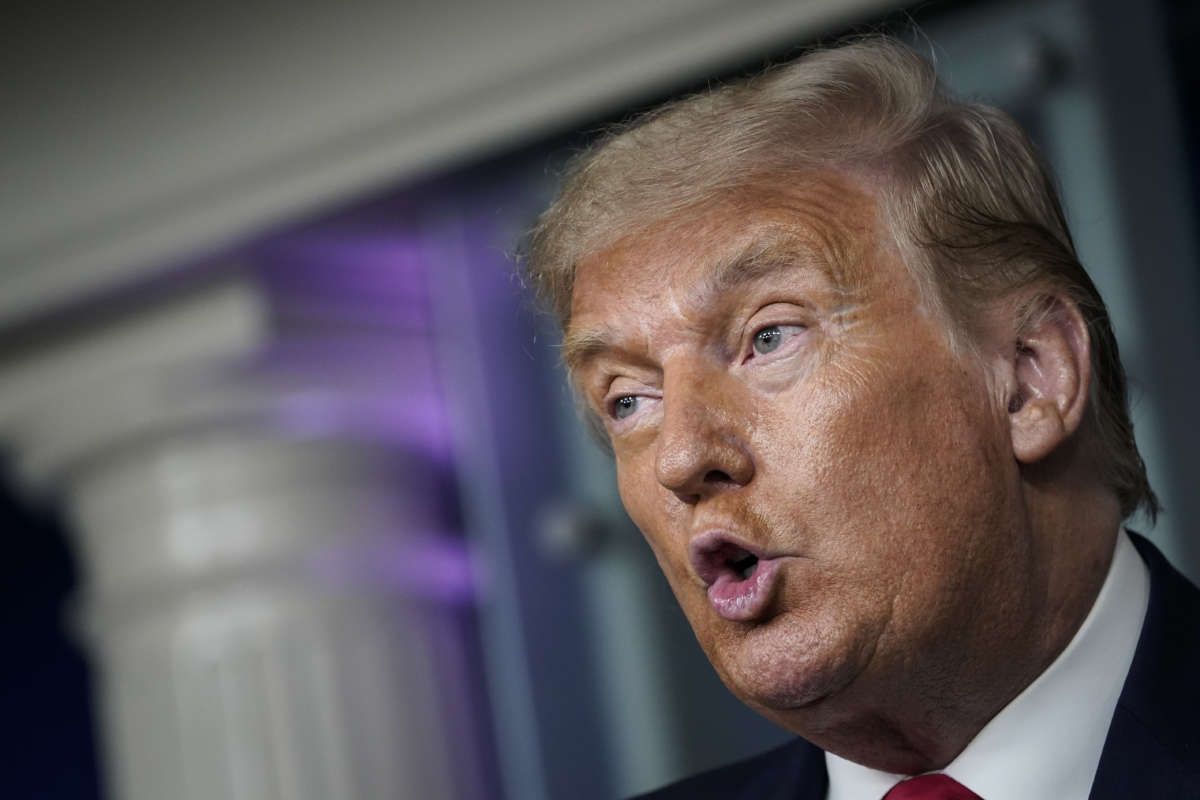Veteran journalist Bob Woodward said he was shocked when he learned from President Donald Trump earlier this year that he had knowledge about the deadly nature of COVID-19 but deliberately withheld that information from the American people.
Woodward conducted a number of interviews with Trump in 2020 for his book Rage, which comes out this week. In a discussion he had with the president on February 7, Trump admitted to Woodward that he was made aware that the coronavirus was deadly during a briefing on January 28.
But when Trump addressed the American people during his State of the Union address on February 4, the coronavirus was mentioned just once during the speech, with the president saying that his administration was coordinating with China to mitigate the disease’s spread in the U.S.
Yet, three days later, when Trump spoke with Woodward, he admitted that COVID-19, which he barely mentioned during his State of the Union speech, was “deadly.”
Trump’s not sharing that knowledge with Americans disturbed Woodward, the journalist said.
“It is one of those shocks, for me, having written about nine presidents, that the president of the United States possessed the specific knowledge that could have saved lives,” Woodward said during an interview on NBC’s “Today” show on Monday. The journalist also predicted that “historians are going to be writing about the lost month of February for tens of years.”
Even though Trump had told Woodward in early February that this coronavirus was deadlier than the flu, the president would end up telling the American people, on a number of occasions, just the opposite. On March 19, Trump explained to Woodward he was doing so purposely.
“I wanted to always play it down. I still like playing it down, because I don’t want to create a panic,” Trump said at that point.
Woodward has faced a number of criticisms over having held on to the information that Trump knew early on that COVID-19 was a deadly disease, though he chose not to reveal it to the public sooner. Had Woodward fulfilled his journalistic duty to inform the public back in the spring, for instance, it might have resulted in a greater number of Americans refusing to believe Trump’s dubious comments about the coronavirus from the beginning. Woodward has since argued that his reason for not making this information public sooner was prompted by his need to verify what Trump was saying to him was accurate.
“He tells me this, and I’m thinking, ‘Wow, that’s interesting, but is it true?’ Trump says things that don’t check out, right?” Woodward said to the Associated Press.
After Woodward’s recordings of his interviews were released last week, the president held on to his defense that he was merely trying to not create a panic early on,
“The fact is, I’m a cheerleader for this country; I love our country, and I don’t want people to be frightened,” Trump told reporters at a press briefing on Wednesday. “I don’t want to create panic, as you say. And certainly, I’m not going to drive this country or the world into a frenzy.”
However, as many have pointed out, Trump’s actions on a number of other issues contradict that defense because he has demonstrated a willingness to promote panic on many occasions when it suited him. In recent weeks he has falsely promoted conspiracy theories about threats posed by antifa groups to sow panic among voters, and also suggested that Democratic presidential candidate Joe Biden wants to “demolish the suburbs.”
